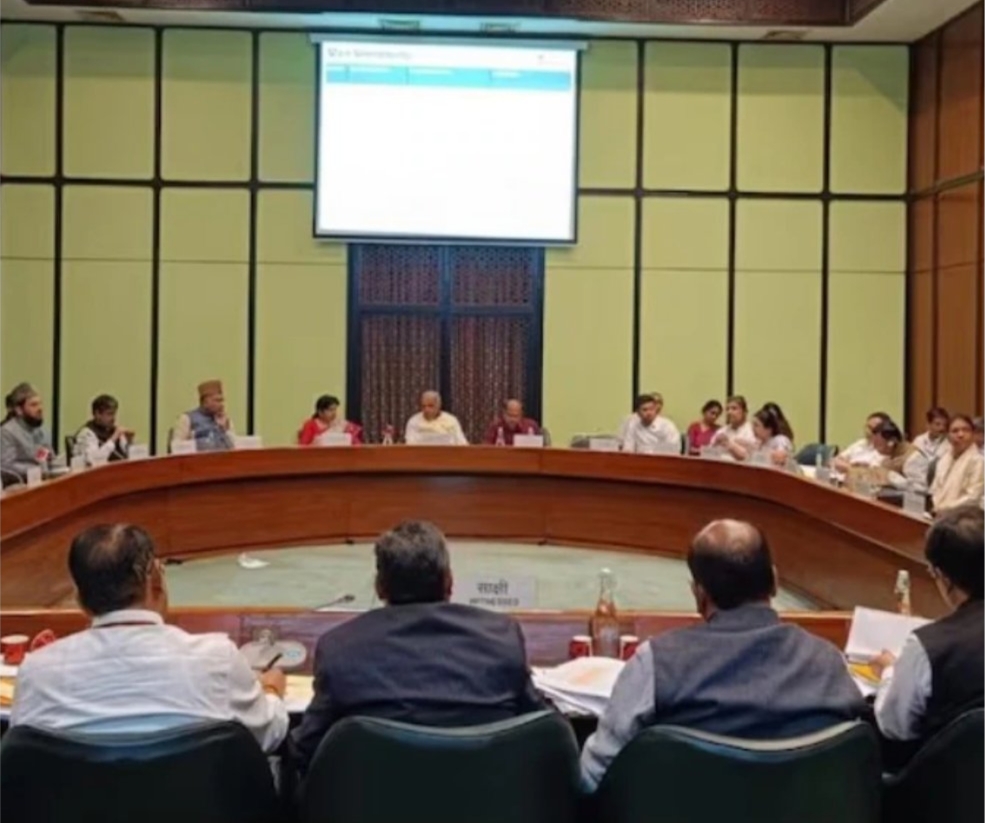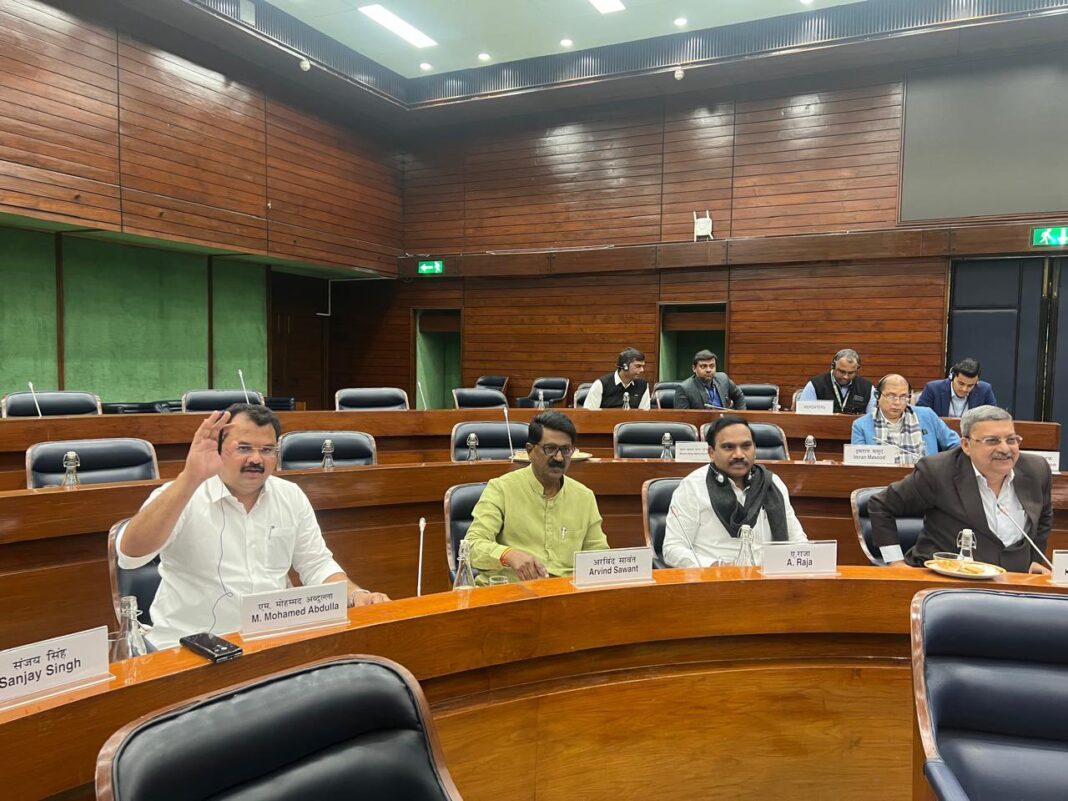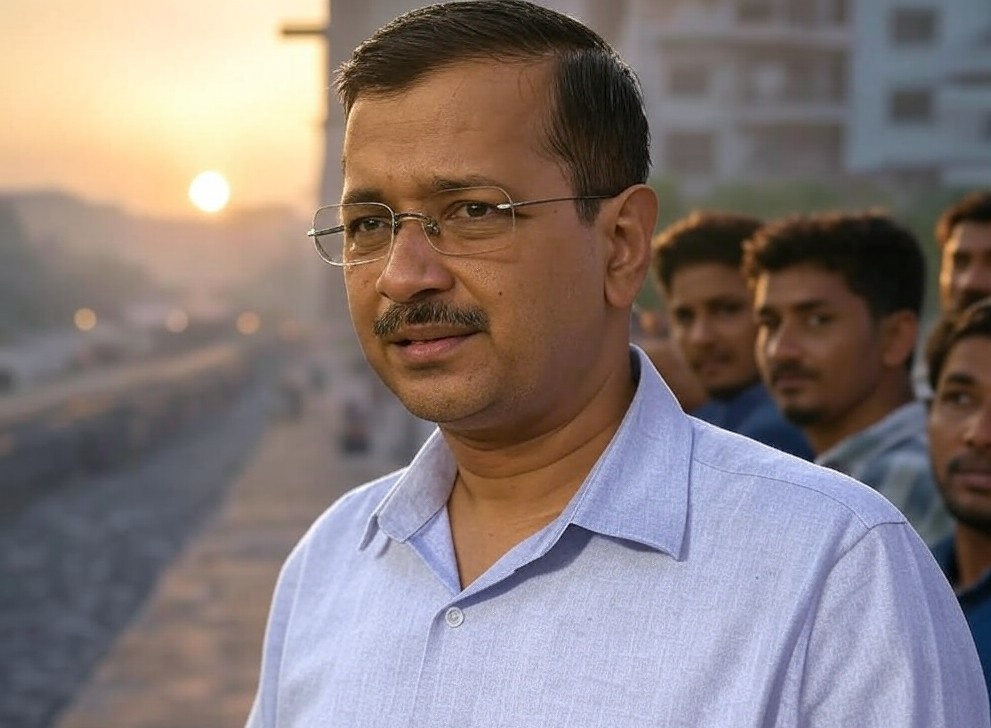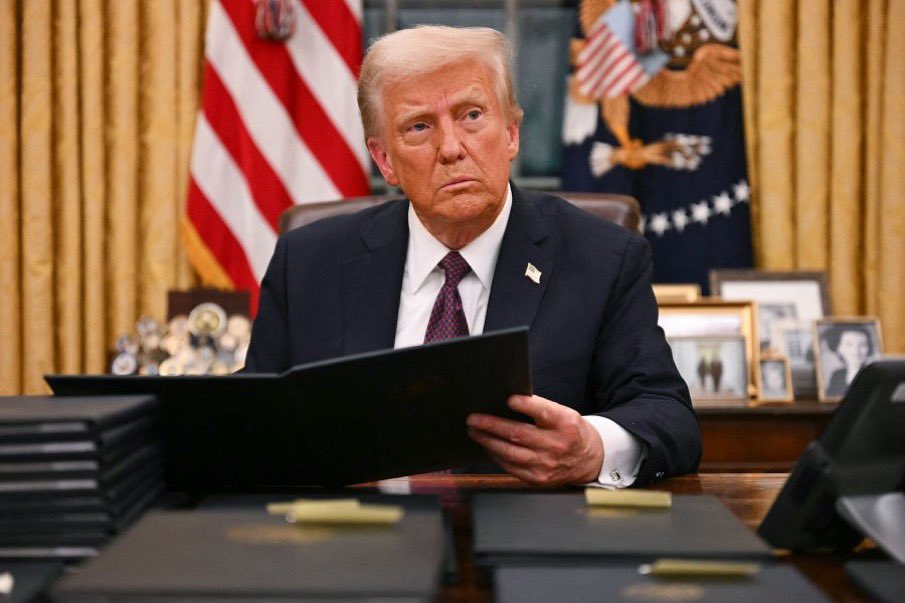By The Sampadak Express
Dravida Munnetra Kazhagam (DMK) Member of Parliament A Raja has sharply criticized the Joint Parliamentary Committee (JPC) tasked with reviewing the Waqf (Amendment) Bill, calling its proceedings a “farce.”
Raja, who is a member of the committee, took to social media platform X (formerly Twitter) to express his dissatisfaction with how the committee was functioning.
Raja revealed that he and other members of the committee were given the 655-page draft report of the Bill only shortly before the meeting, with little time to review its contents. According to him, MPs were expected to go through the entire report, submit comments, and file dissent notes within a very short period of time. He pointed out that such a process was not feasible, considering the length and complexity of the document. Raja questioned the very purpose of an independent parliamentary committee if the government was allowed to bypass democratic processes and make decisions unilaterally.“
The Parliamentary Committee on Waqf Bill has been reduced to a farce. We were told that the Draft Report of the Committee & its Bill will be discussed tomorrow at 10 AM. It is 655 pages and has been sent to us just now. MPs are expected to go through it and provide comments and submit dissent notes. This is simply not possible,” Raja posted on X.
He further lamented, “What is the point of an independent parliamentary committee if the government does as it pleases anyway?”The Joint Parliamentary Committee on the Waqf (Amendment) Bill is headed by BJP MP Jagdambika Pal, and its report is set to be presented in the upcoming Budget Session of Parliament. The Bill, which aims to amend provisions related to Waqf properties, has been controversial, and its progress in the committee has sparked intense debate.
Committee Clears Bill with Amendments
On Monday, the JPC approved the Waqf (Amendment) Bill with 25 amendments across 14 clauses or sections. According to JPC Chairman Jagdambika Pal, a clause-by-clause meeting was conducted during which the opposition members had raised concerns and proposed their amendments over 44 clauses. Pal stated that opposition members would still have an opportunity to present their proposed changes during the upcoming discussions. He assured that the amendments passed during the meeting would lead to the formulation of a better Bill.

Pal was quoted by PTI as saying, “Clause-by-clause meeting was held today. Opposition members had amendments over the 44 clauses. I asked members whether they are moving the amendments. They said they will be moving the amendments. There can’t be anything more democratic than this. The kind of amendments passed today… I believe a better bill will be prepared.”
However, the opposition members have strongly criticized the way the committee’s proceedings were handled. TMC MP Kalyan Banerjee, who was present at the meeting, accused the chairperson of not allowing any meaningful discussion on the amendments and allegedly “subverting” the democratic process.”
Everything was pre-decided. We were not allowed to say anything. No rules and procedures were followed. We wanted to discuss the amendments clause by clause but were not allowed,” Banerjee said.Banerjee added, “The chairperson moved the amendments and then declared them without listening to our points. This is a bad day for democracy.”
Opposition Slams Lack of Transparency
The criticism from the opposition suggests growing concerns over the transparency and democratic integrity of the parliamentary process. Members claim that the meeting was conducted in a manner that favored pre-determined decisions, and no room was provided for a genuine discussion of the Bill’s amendments. This has led to a broader debate about the functioning of parliamentary committees and the role of the opposition in shaping important legislation.
The Joint Parliamentary Committee is expected to meet again on Wednesday to adopt its final draft report, which is likely to be tabled in Parliament during the Budget Session beginning on Friday. The Waqf (Amendment) Bill, with its amendments, will continue to be a point of contention, with opposition members remaining vocal about their objections to the way the process has unfolded.






